“America is hell-bent on continuing the monetary and fiscal policies eroding its economic and geopolitical hegemony. The so-called “thinking classes” that shape policy are trapped in ideologies that keep them repeating the same mistakes over and over – spending too much money with no prospect of paying it back, mismanaging our foreign affairs by imagining a world that doesn’t exist, and prioritizing false concepts of equality and liberty.”
A reminder for Jerome Powell:
"It is obvious from the statistics of the past two months that inflation no longer exists in Canada...we won that fight, and I hope you're congratulating us for it."
- Pierre Trudeau, January 1971
“Lowering the fund rate will do absolutely nothing for the trend in unemployment”
“Now that the Labor Revision Hyperventilation has subsided, it’s time to consider whether we’re even that restrictive once you consider the longer span of history that includes periods other than abnormally low/repressed post-GFC interest rate suppression.”
- Michael Kao
“In terms of the Fed, it kind of is madness and mayhem.”
I don’t necessarily agree with everything Greg (or anyone here) says, but he’s a smart straight-shooter.
“A Secular Breakdown in the dollar”
Apparently they got rid of the old “trade-weighted dollar index.”
The commonly used “dollar index” is basically the dollar/Euro index:
For fun, here’s the Gold/Oil ratio (I cut off the spike to around 150 when the oil price temporarily went insane during the Covid):
Here’s a 10-year Dollar/Gold chart:
Remember, the 2-year leads the Fed Funds rate (which is why we should just replace the FOMC with it.)
“Debt is your enemy because it takes away your freedom of movement and the creativity of your options. Yes, debt can make you money because it allows you to invest when the opportunity presents itself. Yes, debt can help you in the present and leave your problems for what you hope will be a better time in the future.
But debt defines your future, and when your future is defined, hope begins to die. You have committed your life to making money to pay for your past, and your spirit cannot take wing. Leave debt to businesses and corporations that have lives of their own. Stay away from it in your personal life. There is no sadder sight than the person with dreams and promise whose eyes have dulled and whose days are spent pushing the heavy wheel of debt toward an endless horizon.
How much better it is to be at zero and to become the man whose step is light because he has one dollar more than he needs in his pocket. When you are at zero, and if you are not driven by fantasies of perceived need, money has no control over you. You are free to make money work for you in your quest to live a meaningful life.”
Kent Nerburn, Letters to My Son
“The standard of living for the hundred years before 1970 we were growing at 2.3% per annum in real, per capita terms…the last 20 years we're growing at 1.3% per annum, so we've lost more than 40% of our growth rate against trend since 1970.”
"As a rule, panics do not destroy capital; they merely reveal the extent to which is has previously been destroyed by its betrayal into hopelessly unproductive works."
John Stuart Mill (1867)
Lacy Hunt
“65% of our households are basically living on the edge”
“For every 1% increase in government size, you lose about one one tenth of 1% of your growth in the standard of living.”
“If we have negative net national savings, we can have the Federal Reserve accelerate the money supply growth, which is what was done in 2020 and 2021, but increasing the money supply doesn't increase physical assets to consume. You have to have someone push back from the dinner table. There has to be saving out of income to finance physical investment.
When when we relied upon the Federal Reserve in 2020 and 2021 to overcome the the deficit in that national saving, it produced horrific inflation, and then the horrific inflation had a devastating impact on our modest and moderate income households. It appears that the standard of living is has declined very significantly in the last four years. Our modest and moderate income households can not survive in inflation, so you take what seems to be an easy solution - have the Federal Reserve rev up the money supply - the Fed revs up the money supply, but more assets are still not available, so people take advantage of the low interest rate and the resources that are available to acquire the resources that they need to spend, but they're not there, and so immediately the inflation rate shoots higher.”
“Two-thirds of our households cannot afford a new car, whereas historically only about 45% of our households have been unable to afford a new car. That's a hangover of the higher inflation- inflation rate is really the change in prices, but to the average ordinary person, they're looking at the price level as well as the change, and a lot of them are not seeing the improvement in inflation because the critical things that they want to buy that are essential for a good standard of living, like new cars and houses, are so expensive, and we're left with that, and we're and we're going to be left with that for a long time.”
“Virtually all the saving that we have is in really the top 10% of our wage earning household earners, maybe the top 15%, but if they are modest income they cannot save in this environment.”
“Fiscal Dominance”
“Fiscal dominance is a real possibility, and it's frightening if it happens, because basically the the way I interpret fiscal dominance is that effectively the large budget deficits are going to force the Federal Reserve into pursuing modern monetary theory, regardless of whether they want to. In other words, they're going to rev up the money supply, because they have no other choice.
But in the first round, there was 6 months or nine months in 2020 and 2021, and people felt pretty good, because we had all the fiscal programs, and it was funded by the Federal Reserve, but what happened? The inflation rate went to nine and a half percent, and the Federal Reserve and a lot of people were thrown into miserable conditions, and they still are, and so the Federal Reserve had to reverse themselves. Now for fiscal dominance to work, the Federal Reserve has to repeat the error that they made in 2020 and 2021.”
“When gross government debt is more than 90% of GDP for five years…or more, the real per capita growth rate declines by a third against trend…we breached the 90% level for five years or more for gross government debt in 2012. We're now at 135%.”
“The more I hear about Nvidia employees and their riches, the more jealous I feel,” a Meta employee wrote on the Blind app.
The Meta worker1 griped that “some people have to only work for like couple of years to build generational wealth while I need to work like forever to feel safe about retiring!”
Have not personally fact-checked this, but it would not surprise me:
“If you had joined Nvidia 5 years ago as a mid-level product manager with an annual $70,000 stock grant over 4 years, just that initial grant would be worth approximately $10.6 million today. Absolutely remarkable!”
Warren Buffett on Stop-Loss Orders (1994)
“One of the things that was interesting to me, I don’t know whether it was three months ago or when, but I happened to be talking to the [NYSE] specialist, terrific specialist, Jimmy Maguire.
He had to leave, but he was here earlier in the session. And I think, at the time, the stock was around 16,000 or something like that. And he had some rather significant stop-loss orders on the books at 15-5, or thereabouts, involving some hundreds of shares.
And that to me is a signal that, you know, we have some people that are — in my view — are not really the kind of owners that we would like to attract. Because why somebody wants to put in an order to sell something for 15,500 that they don’t want to sell at 16,000 is beyond me, but — (Laughter) The idea of people using stop-loss orders with Berkshire, obviously — it tells me that we’ve got some people in that are using it as a trading vehicle of some sort, or have some totally noninvestment-type calculations in their mind.
I don’t think we have very many of them. But obviously, if we have enough people like that, you will have a more volatile stock than if you have a whole bunch of people who look at it as something that they’re going to hold for the rest of their life.
And the stock did go down at that time and hit 15,500. And there were — that — I think it was close to 300 shares, which is 4 1/2 million dollars’ worth of stock. And somebody made a decision, apparently, that they — or some small number of people — made a decision that they wanted to sell something at 15,500 that they could have sold for 16,000.
The lower it went, the better they liked it, apparently. I mean, the better they liked the sale. (Laughter) Which, you know, has always struck me as like having a house that you like, and you’re living in, and, you know, it’s worth $100,000 and you tell your broker, you know, if anybody ever comes along and offers 90, you want to sell it. I mean, it doesn’t — (Laughter) — make any sense to me.”
Warren Buffett’s Berkshire Hathaway surges past $1tn market value “Warren Buffett’s Berkshire Hathaway became the first publicly traded US company outside the technology sector to be valued at $1tn, as a small advance on Wednesday pushed its market capitalisation into a club that had been dominated by companies such as Apple and Microsoft…The surging valuations in Berkshire’s shares and the wider stock market have not been lost on Buffett. The billionaire in May slowed the company’s share buyback programme and disclosed in June that he had not repurchased a single share that month.”
People are very much more interested in hearing the the bear case
“While you say most people are invested from the long side, and that's clearly true, I think they are underinvested relative to where they in particular wish they had been, right? With the market basically very close to all-time highs here, they clearly wish they had more money in the market, and they don't, so it makes them feel a little bit foolish, and therefore if the market came down, they would maybe feel a little bit better about themselves, and maybe they could put some of the money to work that they wish they had put to work. I just noticed that people are very much more interested in hearing the the bear case.”
Why are taxpayers on the hook for stuff like this? (if the banks ever fail, which they won’t of course.)
Carl Icahn “pledged more than half of the company to secure the margin loans. If for some reason the price fell, the banks sent Icahn a margin call, and he didn’t pay, they’d have to sell more than half of the company’s stock into the market to get their money back. That would probably be bad for the stock price. Perhaps bad enough that they wouldn’t get their money back.
But it gets worse. IEP is, loosely speaking, an investment partnership, owning large stakes in publicly traded companies as well as some private companies. It reports an “indicative net asset value,” that is, its own valuation of the stuff that it actually owns. In December 2022, that reported value was about $5.6 billion, or about $15.96 per share. That is, IEP traded at more than a 200% premium to its net asset value.
If you thought of IEP not as “a publicly traded company with a market cap of about $18 billion,” but rather as “an investment fund with about $5.6 billion of assets,” then it is really really weird that the banks would lend Icahn $5 billion against half of that fund. Those loans were pretty undersecured,”
Anna Wong pointed out some comments from the Dallas Fed Services Activity Report.
Here are the comments that jumped out at me, each one from a different responder:
I feel that a recession is going to hit the U.S.
Our data supports the thesis that consumer spending is paring back materially.
Costs continue to rise while pressure from customers and prospects to decrease prices is continually increasing.
The Federal Reserve lowering rates will decrease our cost of funds immediately.
The amount of political noise is disruptive to business owners. Political ads are proliferating, providing little value and worrying business owners.
As stress percolates through the multifamily real estate industry, we see litigation increasing. Desperate owners and suppliers are filing absurd suits against anyone they think they can blame or collect from.
We are a large, heavy equipment distributor in Texas, Oklahoma and New Mexico At the end of July we were down 6.3 percent. That decline in this year versus last year has been consistently increasingly throughout the year. We were only down 10 percent during the pandemic of 2020, and we average 10.7 percent increase in sales per year over 65 years. So, this year's decline is unusual for us and is unsettling! People are out of money. They're parking their cars and throwing their keys to the dealership or banker, as it’s car or food for the family. And worst of all, I think it has just begun.
It's curious that news headlines say inflation is going down, but in the design and construction industry, we have not seen prices going down. In fact, they’re going up. For example, a door that cost $3,000 a year or so ago is now pricing in at $10,000.
The biggest issue keeping companies from doing much, in my opinion, is politics.
Customers are having difficulty coming up with funds to pay for our services.
The rise in utility bills, insurance and property taxes, plus the fear of recession, are changing my customers’ buying habits.
2007
Peter Boockvar
“Warren Buffett's been paring down his position in Bank of America in a pretty significant way. He still owns quite a bit of it, but clearly he's selling. The same thing can be said for Apple. As of this podcast, Warren Buffett now owns 4% of all the T-bills issued in the United States. I think it's $277 billion dollars, which is more by the way than the FED. [Important note, Peter: The Fed owns $4.4 Trillion of Treasuries, mostly notes and bonds - rh]
Debt right now in the United States is over $35 trillion. I think it grows by a trillion every three and a half months or so, so you can do that math. If there is a human being on Earth that has more access to real-time economic data, it is him, with the businesses that he owns, and I don't know whether he gets his spreadsheets every day, every week, but when you think about he's getting every day, every week, rail car loadings and chocolate sales and ice cream sales - there is no one who has access to that daily information that he does. Car insurance and the sale of bricks into residential construction. I mean he touches everything with what he owns, so you you have to respect the decision-making he's doing on the publicly traded side.”
Jared Dillian
“If you watch the movie [The Big Short] or read the book, Steve Eisman, Michael Burry - they put these trades on, and the housing market started to collapse, and they didn't make any money, right? They didn't make any money because the banks kept marking their bonds in the same place, and they were furious. They're like, ‘How can you mark the bonds here?” But the banks could mark the bonds wherever they wanted to.
It's the same thing with private-equity. Let's say we get - just a stupid example - but let's say the stock market goes down 50%, right? The S&P is down 50%. Well, private-equity should be marking down their portfolios, but they won't. They can't. So it's the same exact scenario. However long you think this is going to take to play out, it is going to take even longer, because they will not mark down their portfolios until they absolutely have to so.”
Louis-Vincent Gave
“God forbid the Boomers might not be able to buy a second yacht when they retire in Florida at 65”
“Is it better that we screw young people, and make real estate unaffordable, so that the older people get to live comfortably, or is it better the other way around? The reality in West - this is what we picked. We had real estate go down, we had bank problems - oh my God, God forbid the Boomers lose money, you know, God forbid the Boomers might not be able to buy a second yacht when they retire in Florida at 65, and if that means screwing over the 20-year olds, so be it. Let's screw over the 20-year olds, right? And that's exactly what we've done.”
I'm not a fan of generational generalizations though. "Boomers" above should perhaps be replaced with "the 10% of people who own 93% of equities."
“Equities should be the variable of adjustment. Equities should be the last guys to get served at the dinner table. If there's lots left, they get the whole everything, and if there's nothing left, tough. That's why you're the equity holder."
“Out of nowhere in the past five years, China is now the biggest car exporter in the world. When I tell this to Americans, ‘there's no Chinese cars on my street you say’. OK, sure. Now you know go visit Sao Paulo, go visit Riyadh and you'll see a lot of Chinese cars that just weren't there five years ago. You can make the same story for nuclear power plants, for solar panels, for turbines - you name it, China is now exporting it.”
One comment on this:
“The buyer of physical gold in the world is not a guy sitting in Toronto or a guy sitting in New York. It's a guy sitting in Hong Kong, a guy sitting in Riyadh, or a guy sitting in Mumbai. Roughly two-thirds of the physical demand for gold comes out of India and China.”
Mike Shedlock
“Everyone has a lot of faith in these jobs reports that by now should be clear are totally bogus.”
“Businesses of size 20 to 49 employees have as many overall employees as corporations with 500 or more employees. They're equally important.”
“This is where I think the birth-death model went wrong. I think they oversampled large corporations and undersampled small to medium sized corporations”
“You can ask me anything. You just have to be prepared for the answer.”
(Home Equity + Mortgage Debt)/GDP
New Single-Family Houses for Sale, All Stages of Construction
Seattle: “Kevin Corbett, the CEO of Plus Investment (USA), waited over eight years for a master-use permit to build a 46-story residential tower near Pike Place Market. But he’s indefinitely paused the construction over the Seattle crime crisis. “Unfortunately, I don’t see us going vertical anytime soon with the continued public safety concerns in the neighborhood,” Corbett told the Puget Sound Business Journal. “Open-air drug markets are still visible day and night on Second and Third Avenue. I know the city needs more resources, but I don’t see much new downtown commercial development happening until there is a stronger crackdown on these illegal activities.”
Dallas: “The previous leadership at the pension system, composed mainly of police officers and firefighters, bought real estate and paid far exceeded what the property was actually worth. Not only was the board overpaying, it was buying more. Acres of empty land in rural Idaho and Colorado. A wine resort in California. Luxury homes in Hawaii.
“The U.S. is in a massive housing bubble. Prices are artificially high due primarily to the downstream effects of financialization. Localized supply and demand dynamics — which today are also downstream of financialization — are a mess. Decades of housing subsidies, down payment assistance, artificially low interest rates, money printing and endless bank support have turned the American home into a financial product first and a place of shelter second. The extent of the distortion is unprecedented”
“Fannie Mae and Freddie Mac are preparing to impose stricter rules for commercial-property lenders and brokers, following a budding regulatory crackdown on fraud in the multitrillion-dollar market. Lenders would have to independently verify financial information related to borrowers for apartment complexes and other multifamily properties” [They didn’t do this previously??!!]
Re-thinking How We Measure Homeownership
People are waiting longer to buy homes. According to the National Association of Realtors, the median age of first-time homebuyers reached 36 in 2022, an all time high.
Young adults are living with their parents for longer. According to an Apartment List analysis of Census data, the share of 25-35 year olds living in their parents’ home has more than doubled over the past 50 years.
“One can see clearly that industrial loans are both the largest by average current balance and the least distressed, whereas multifamily loans are less than half as large on average, but also significantly less distressed than other property types. Unsurprisingly, office loans are both large on average and the most-distressed property type in the aggregate.”
Failed sale, appraisal delays behind first loss on a AAA bond since 2008 crisis
“A failed attempt to sell a New York City office tower helped cause more than a year-long delay for two credit rating agencies to downgrade a commercial mortgage bond to junk…The delayed ratings cut of 1740 Broadway bonds blindsided investors in the safest tranche of the commercial mortgage-backed securities (CMBS). The 26% loss on their $157.5 million investment sent shockwaves across financial markets that rely heavily on ratings as an assessment of credit quality, and marked the first loss on a AAA-rated bond since the 2008 financial crisis.
Credit rating agencies S&P and DBRS Morningstar downgraded the top-rated AAA tranche of a commercial mortgage-backed security (CMBS) on 1740 Broadway to below investment grade in August and November 2023, respectively.
It was March of 2022…when private equity firm Blackstone Group, the owner of the building, turned the keys over to investors after the anchor tenant decided to move out in the aftermath of COVID-19…Blackstone bought 1740 Broadway in 2014 for $605 million. The debt that financed the purchase was packaged into the CMBS the following year. The building’s main tenant was L Brands2, which at the time was the owner of Victoria’s Secret and other brands.
S&P and DBRS rated the top tranche of the security – the first to be paid interest from the building’s income – as AAA. At the time of the CMBS issuance, DBRS noted in its rating report an issue with how cash from the L-Brands lease was not being saved for a rainy day. But it took into account "strong sponsorship in Blackstone" as a mitigating factor.
Trouble started when L Brands said they would move out in March 2022, prompting Blackstone to default on the loan…
An appraisal was finally provided in July 2023…It valued the building at just $175 million, which meant there was not enough money to pay what AAA holders were owed. S&P cut its rating on the bonds to BB+, which is below investment grade. The AAA bonds, which were until then hovering around 90 cents to the dollar, declined to 75 cents and then to 60 cents…”
“Low interest rates, and excess credit creation”
“The number one solution - and I'm going to date myself - would be to embrace the Ron Paul philosophy, and do away with the Federal Reserve, which has since the day it was started inflicted more harm than good on the US economy. So that would be my first solution.”
Chris Arnade
“In my brief dealings with her, it’s clear she’s mentally ill, and while she needs a home first, which given the New York system, is available (despite the bureaucracy, the homeless do have options in NY), she also probably needs to be in an institution, at least for enough time to be evaluated and if necessary, medicated, which I’m told she doesn’t believe she needs.
We don’t do that though these days, because involuntary treatment is seen as a human rights violation, even if the person is a clear threat to themselves (as she is) or others (I doubt she currently is, other than by causing a car accident).
I’ve not written about this issue before because my primary focus has been on the lack of organic support (family, community) in the US that most other countries have, and because it’s an ethical and political minefield, but at this point, after all I’ve seen¹, and I’ve seen far far worse than this woman, I agree with Freddie deBoer that in the US we need to return to involuntary treatment, and even mandated institutionalization, for a segment of the homeless, both for humanitarian reasons, and for the health of broader society.
Or to put it in my framework, with the breakdown of the family- and community-based support systems, we’ve handed off responsibility for those with the least to the government, who in the case of the most destitute (mentally ill, homeless) have said, “It’s best we don’t get THAT involved, for blah blah blah reasons,” which has left a lot of people with no support, recourse, or consequences, beyond periodic imprisonment. No matter how some might try to spin the idea everyone, regardless of their mental condition, should be free to “choose a life of squalor, mental anguish, and even aggressive behavior on the streets” over mandated treatments, because of liberation or emancipation, it is not the moral, humanitarian, or just thing to do. It’s well intentioned cruelty.”
Nauseating. Private Equity is a plague.
Private Equity Is Coming for Youth Sports
“Kids’ sports have become an expensive, high-pressure affair. An industry famous for squeezing out value claims it will make the experience better.”
“The problem with American discourse is that people spend all their time judging the speaker and no time thinking about the points the speaker makes.”
Robert F. Kennedy, Jr.
The Democratic Party "abandoned democracy by canceling the primary to conceal the cognitive decline of the sitting president"
"It’s the duty of a free press to safeguard democracy and to challenge always the party in power. Instead of maintaining that posture, of fierce skepticism toward authority, your institutions and media made themselves government mouthpieces and stenographers for the organs of power."
"Ultimately, the only thing that will save our country and our children is if we choose to love our kids more than we hate each other."
RFK Jr.
His eloquence on issues such as chronic disease, for example, is almost unique in politics today.
I understand there is no perfect politician (which is why Kucinich left RFK Jr.'s campaign), but a very flawed RFK Jr. is still the most anti-neocon guy (after Tulsi Gabbard) on the national stage right now. Plus maybe we'd get a second Church Committee.
I mean, at this point we're choosing between Rabies and Ebola.
Ebola is survivable.
The left-of-center site NakedCapitalism covers the topic here.
It’s a good speech. At least listen to it before you tell me how much you hate him.
“Kennedy needs no script because when you genuinely give a shit about something you don't need moronic soundbites and emotive drivel. He walks in and tells it straight. He's been doing this for decades.”
“Bill Barr was the Attorney General under Bush One that covered up the whole Franklin Scandal, and then he's the Attorney General under Trump who covers up the Epstein scandal…a lot of people are aware of Epstein, I think most of them, but they haven't quite accepted that the government covered it up.”
“The reason why the Republicans haven't gone after Epstein - when it's mostly Democrats - is because the Republicans are compromised that way. As I said earlier, the Franklin Scandal was about Republicans and little boys, and Epstein is primarily about Democrats and little girls, so both parties are equally incriminated in that type of behavior…”
“The only thing that I believe that can bring people together at this point - Americans together of right and left - is Epstein. If Americans truly understand that the government has let child molesters abuse all these kids with impunity, I think that could bring the right and left together. I think that's the only issue. Children shouldn't be molested with impunity, which we've seen with Epstein. I think that that is the only thing that the right and left can agree on wholeheartedly at this point.”
“There's two people in the government that can tell a US attorney to stand down. One is the President, one is the Attorney General…think about this too - it went on under Bush, it went under Obama, it went on under Trump, and now it's Biden. So four presidential administrations have covered up Epstein, two Republican, two Democrat. That kind of shows you how lethal that issue is.”
UAP’s
Joe Rogan with Luis Elizondo One of the UAP cases Elizondo mentions is described in the George Knapp testimony below. Elizondo also mentions James Lacatski, who I wrote about a year ago here in More High Strangeness.
Reporter George Knapp’s statement to Congress, July 26, 2023
“Col. Sokolov also shared information about an alarming incident at a Russian ICBM base in Ukraine. UFO’s appeared over the base, performed astonishing maneuvers in front of stunned eyewitnesses and then somehow took control of the launch system. The missiles aimed at the US were suddenly fired up. Launch control codes were somehow entered, and the base was unable to stop what could have initiated World War 3. Then, just as suddenly, the UFOs disappeared, and the launch-control system shut down.”
According to the latest from the Social Security Administration (2022), over half of wage earners made less than $45k.
L Brands of course was led by Jeffrey Epstein’s mentor, Les Wexner.






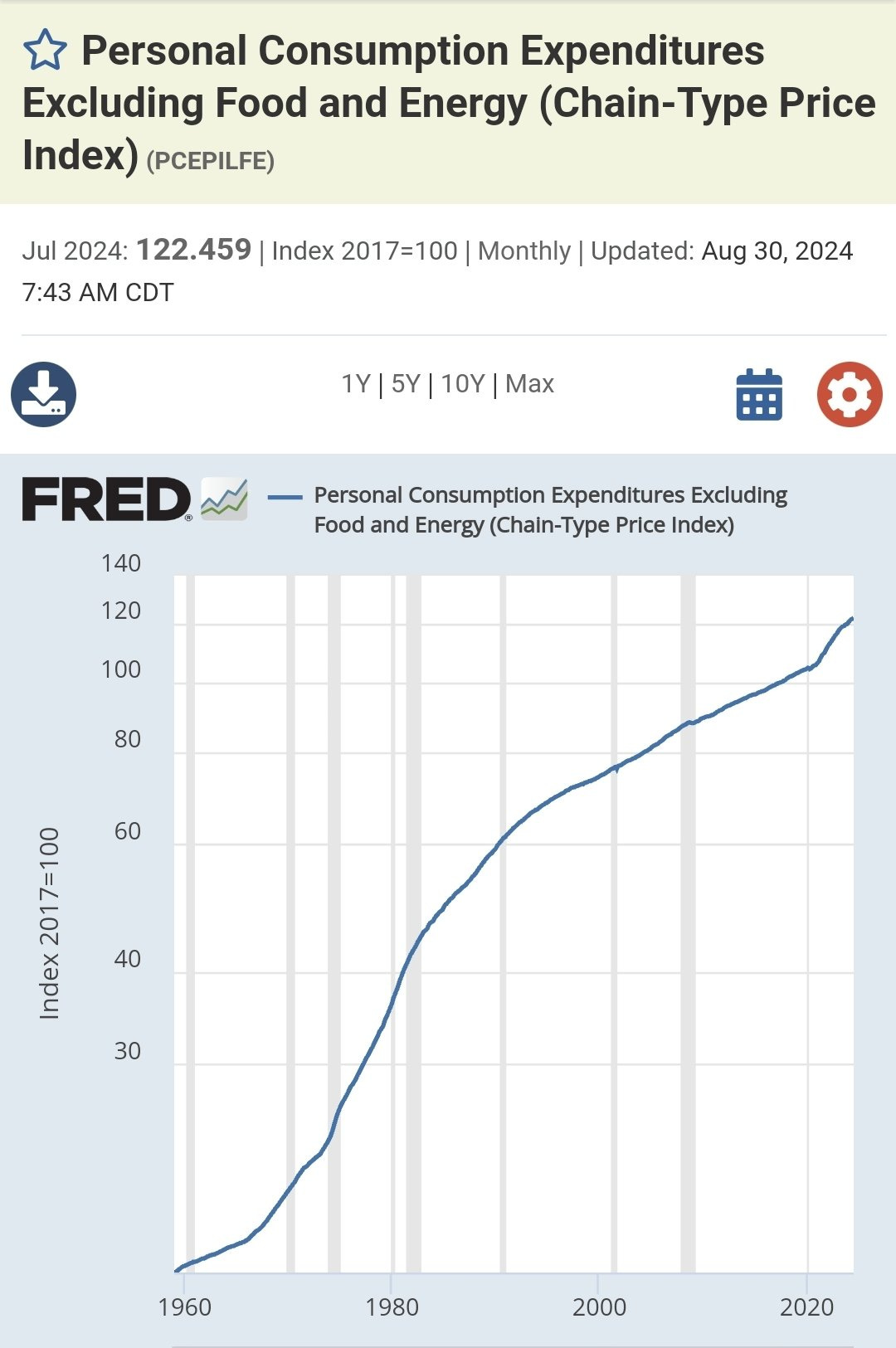





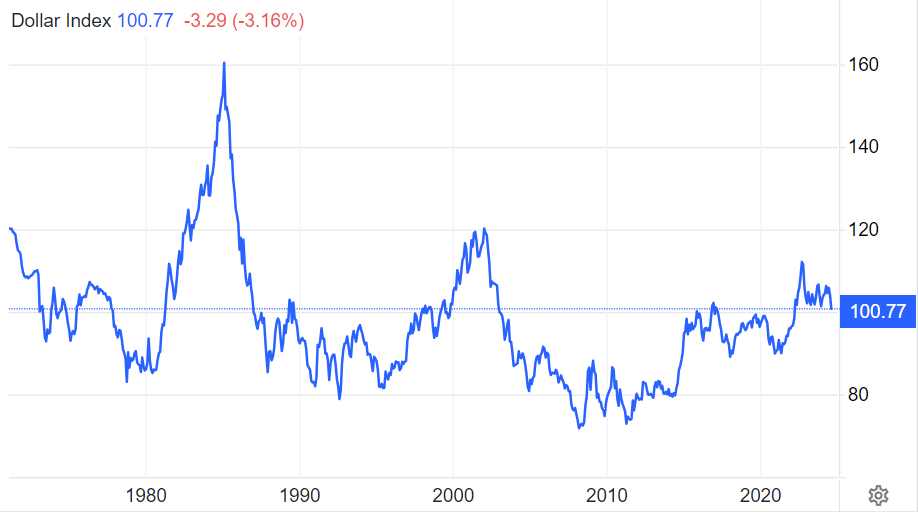





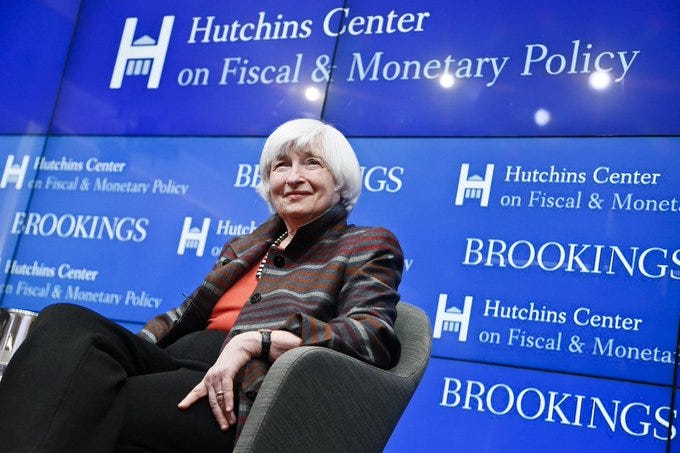


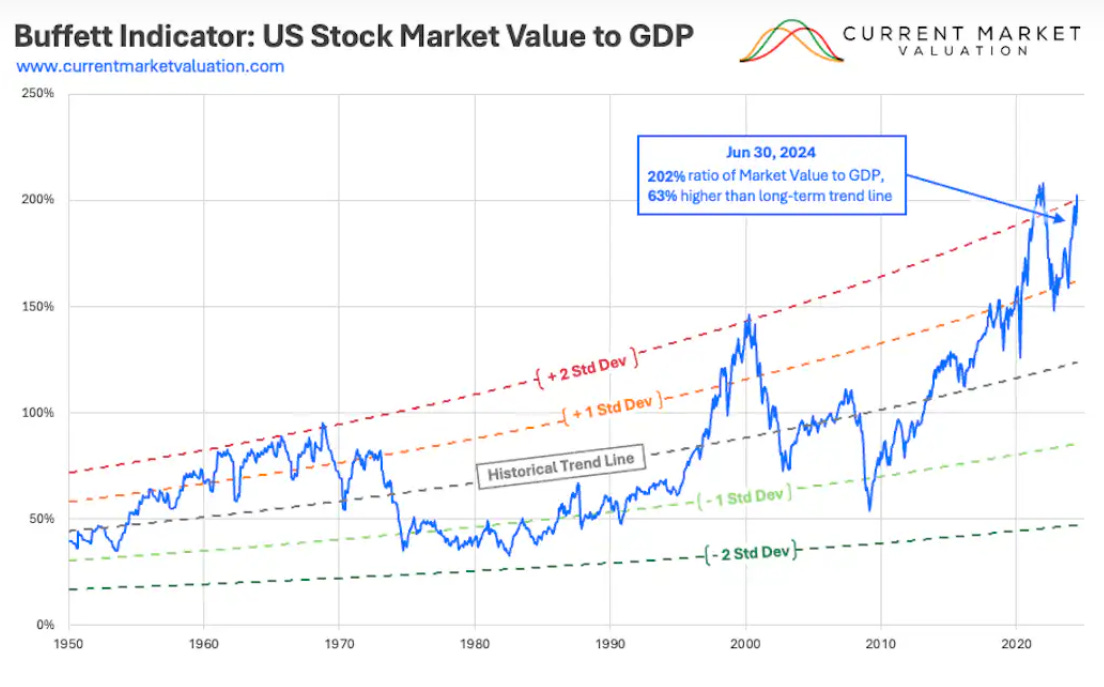


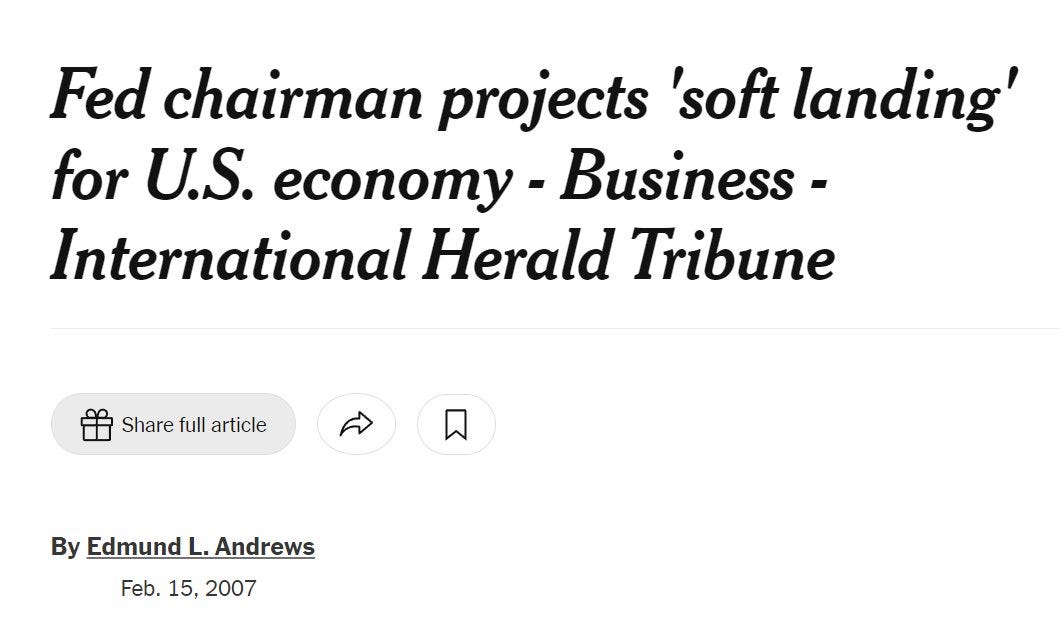




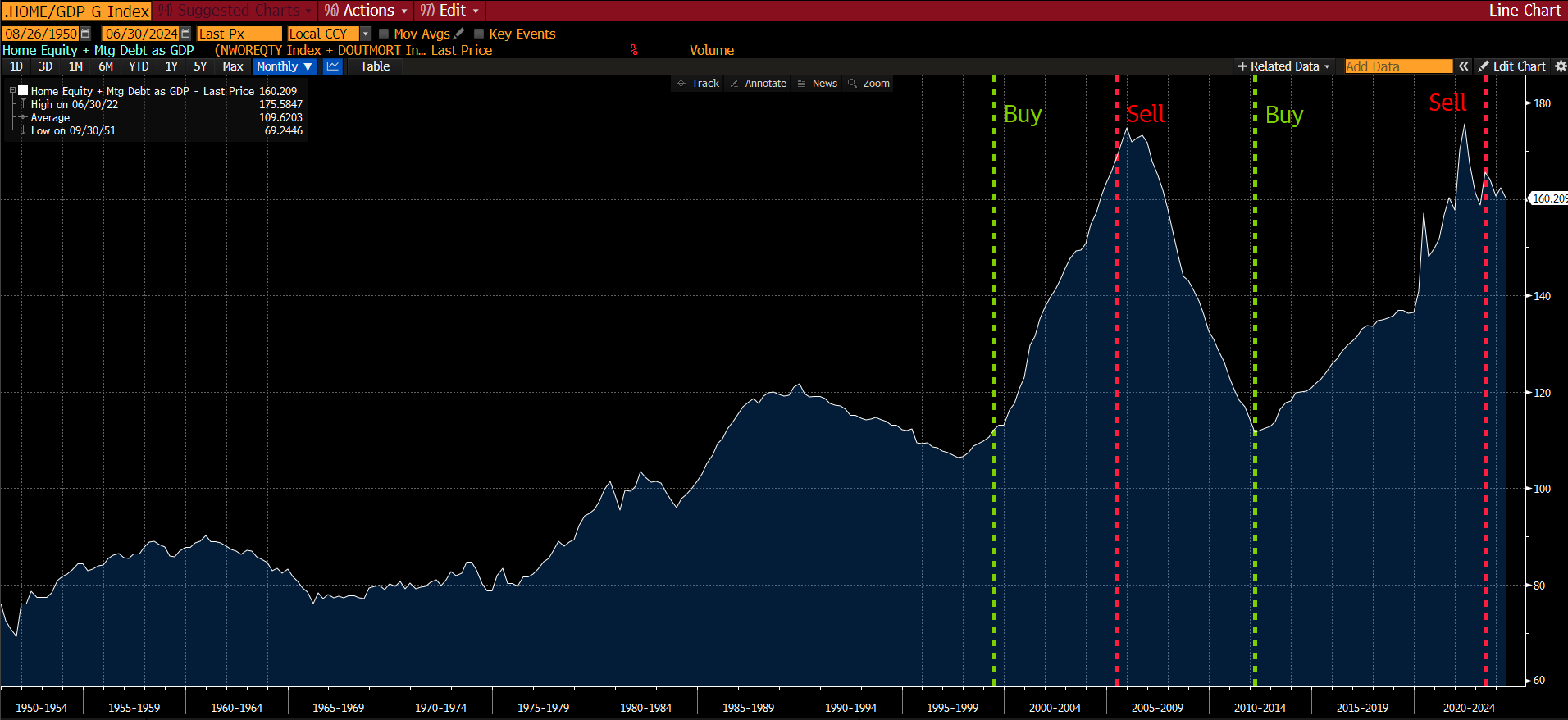


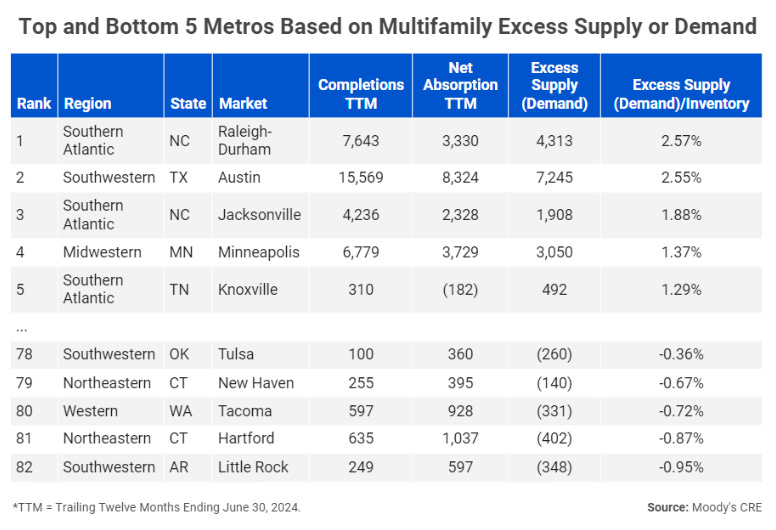








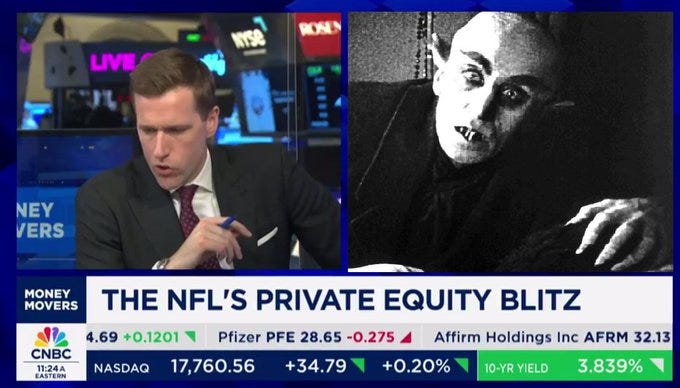



I look forward to your weekly posts like you wouldn't believe. If I may, I would like to suggest for a musical selection, Killing Joke's "Eighties"for your readership. It's a song that hints of the bad old days, cause the Eighties were not fun for anyone in middle America. Those bad old days are coming back....
Great passage from “Letters to my Son”. Thanks Rudy!